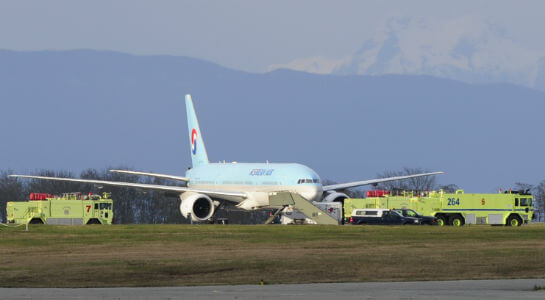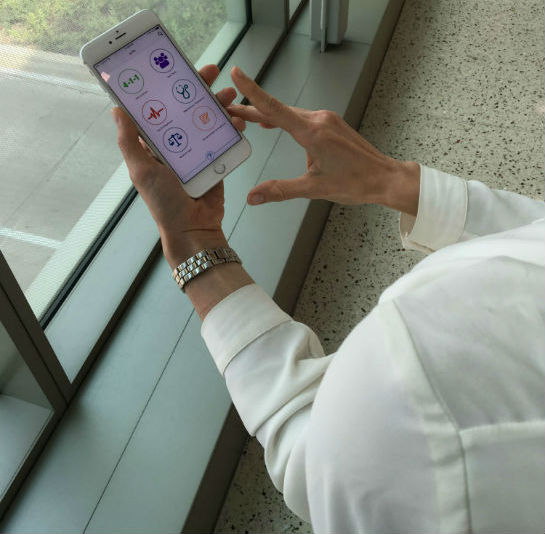Estimated reading time 6 minutes, 1 seconds.
When emergencies happen on aircraft, they can be deadly. A new smartphone app aims to help doctors deliver in-flight medical treatment until help can be reached on the ground. Mike Reyno Photo
Dr. Claude Thibeault recalls being asked to respond to an in-flight medical event only three times in a career that has lasted more than four decades, including a lengthy stint as medical director for Air Canada.
The most exceptional case came on a commercial airline flight from Bombay (now Mumbai), India to Montreal in the late 1980s, when an elderly patient suffered heart failure and did not survive.
“It was a significantly older patient that had cardiac failure and should not have been on the flight,” said Thibeault, who lives near Montreal and is now medical advisor to the International Air Transport Association.
“Obviously it was stressful, because you don’t expect to do that on a flight. An aircraft is not the best place to practice medicine.”
Yet in-flight medical events happen more often than many people realize—between 150 and 200 times every day across the world, said Thibeault.
With limited equipment and supplies on board, lack of space and the time lag to reach medical help on the ground, planes are among the most challenging places to treat patients.
AirRx was beta tested by 20 physicians for a few months before it was released in the Apple App Store in May 2016 and in the Google Play store in June. AirRx Photo
It’s an issue that has appeared in both medical journals and the lay press, and when a University of Illinois survey confirmed many physicians are not familiar with the resources available on board, Thibeault and a team of other doctors started working toward a solution.
The result is airRx, a smartphone app developed to prepare and guide doctors who volunteer to help with in-flight medical emergencies.
Through the app, doctors can access 23 scenarios of the most common medical emergencies, with concise treatment algorithms and quick reference information to help evaluate and treat the patient.
AirRx functions in airplane mode, without an Internet connection, after being downloaded from either the Apple App Store or Google Play.
The hope is doctors will consult the app before flights to prepare themselves for potential emergencies, with the ability to also consult the app in real time for guidance during a medical event.
“When emergency medical care is needed on a flight, a call goes out from the cabin crew to see if a health professional is present and willing to help,” said Dr. Raymond E. Bertino, a professor at the University of Illinois College of Medicine, in a news release. “But when health professionals respond, they must provide care in an unfamiliar setting with little equipment or assistance, and often to treat a condition outside their usual scope of practice.”
Bertino led an app development team that included Thibeault, who is an aviation medicine specialist, as well as experts in emergency medicine and ground support for in-flight emergencies.
The app is aimed at health professionals who do not treat acute medical events on a routine basis and has information about the equipment and medications available on airline flights; how the cabin crew can help; and how ground medical support is integrated into these events, among other features.
AirRx was beta tested by 20 physicians for a few months before it was released in the App Store in May 2016 and in the Google Play store in June. Ten per cent of the physicians participating in the beta test reported having used it in flight.
“We have positive comments from several physicians that have seen or purchased the app,” said Bertino in an email to Skies.
There is no formal training in medical school for handling in-flight medical events, according to Dr. Paulo Magalhaes Alves, medical director for MedAire, a company that provides medical advice to commercial airlines.
“And because many physician volunteers work in subspecialty areas in which they do not regularly see emergent events, they may lack knowledge regarding a specific event,” he said in the news release.
As for Thibeault, he acknowledged the lack of formal training but said the AirRx app is a measure that should help in the interim and may save lives.
“It may make a difference in the decision of treating, and it may make a decision in the term of whether we should land or not,” he said. “Certainly, it could make a difference.”



